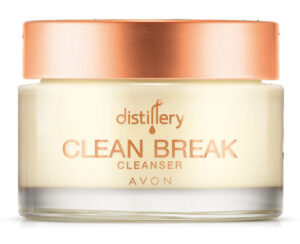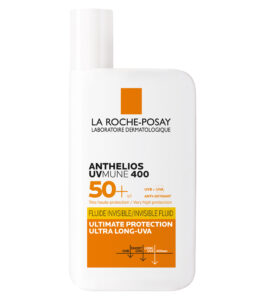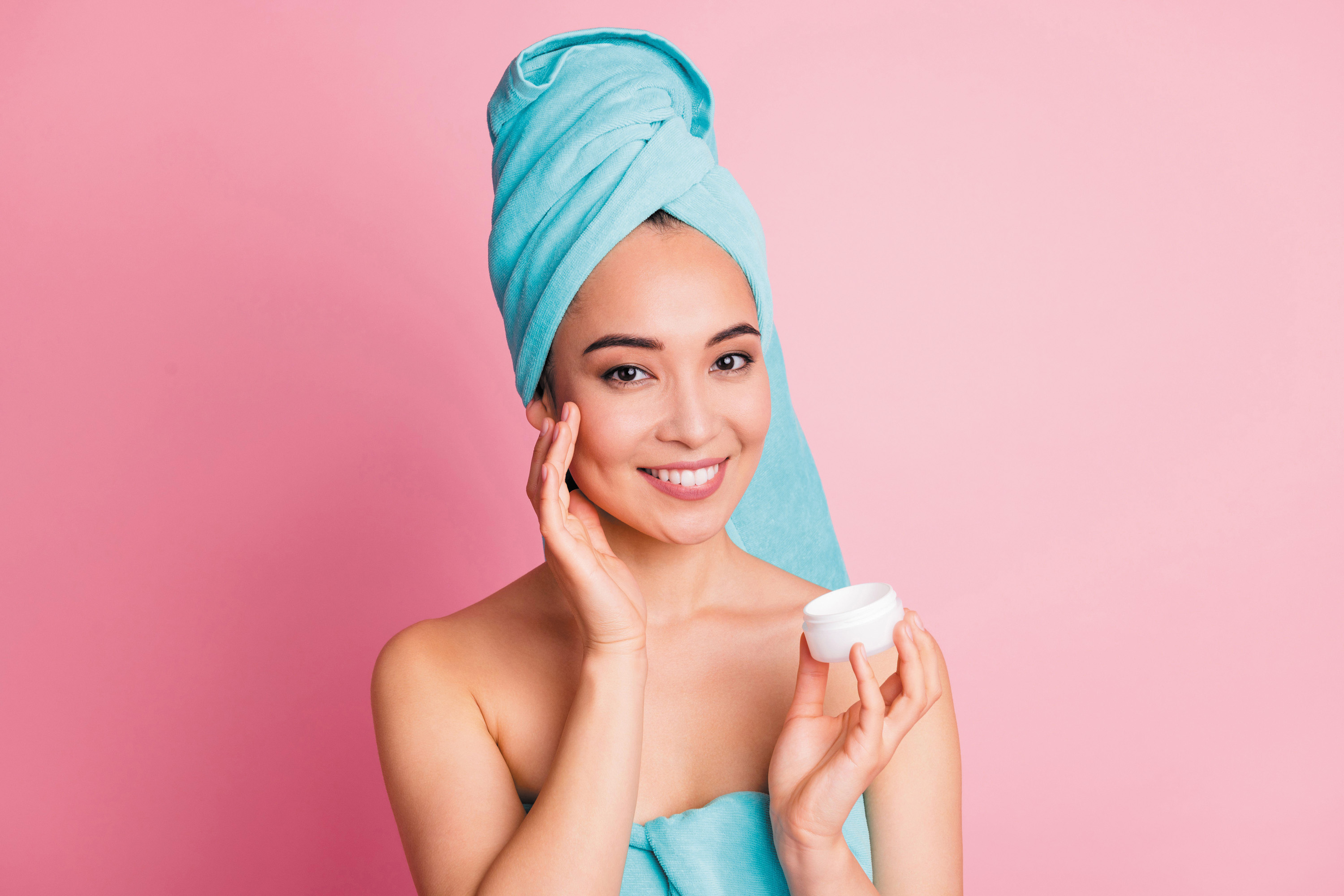By Katie Wright
According to beauty writer and broadcaster Sali Hughes, building a skincare routine is a bit like getting dressed.
“I kind of think of it as the jeans, the white T-shirt, the good white knickers, the good sports bra – you just need your basics that work,” says Hughes, who has amassed 207k loyal Instagram followers thanks to her no-nonsense tips and product recommendations.
She says shopping for single-ingredient skincare is like “going into a restaurant, ordering dinner, and having a waiter dump a load of produce on the table in front of [you] and saying, ‘Make your own dinner’. It should be simple, you shouldn’t have to do the work,” she states.
You don’t necessarily have to shell out on premium brands either – even the most powerful ingredients can be found in reasonably priced products – nor do you have to spend more than about five minutes in front of the mirror to get the job done.

Avon Distillery Clean Break Cleanser, £15, available from Avon. PA Photo/Handout.
Cleanser
First up is cleanser, which is split into two categories: morning and night.
“You do not need morning cleanser with mega cleansing capabilities because you’re just removing a bit of dust, a bit of sweat, a bit of skincare from last night,” says Hughes, who prefers a gel or cream formula that can be rinsed off or removed with a damp flannel or reusable cotton pad.
For evening, she recommends a cleansing balm, which acts as “a make-up and sunscreen remover. Massage it into your face, add a little bit of water, it immediately turns into a milk and comes clean away with a flannel.”
And while many skincare pros advise against foaming face washes that can strip the skin of moisture, Hughes isn’t so prescriptive: “The most important thing about cleansing is that you do it. Actually, loads of people like a foaming cleanser. I personally don’t, I don’t think it’s the best thing, but if that’s what you need to make you cleanse every day, you do you.”
Exfoliator
Rather than a scrub that physically sloughs away dead skin cells, a chemical exfoliator containing acids such as lactic, malic, glycolic, salicylic (or a mixture) works below the surface to increase cell turnover and improve skin brightness.
“Drench a washable cotton pad with that and sweep it all over,” Hughes says. “I’m a daily exfoliation [fan]. If you’re not, you can use it less frequently, say once or twice a week.”

La Roche Posay Anthelios UVMune 400 Invisible Fluid SPF50+ Sun Cream, £15.30, available from La Roche Posay. PA Photo/Handout.
Serum
Often lighter in texture than moisturiser, serums are formulated with potent active ingredients that deliver skin benefits as well as hydration – often in the form of hyaluronic acid – and can be applied morning and night.
In terms of serum formulas, Hughes says: “Vitamin C is the single most important ingredient to me. It’s great for brightness and antioxidant protection.”
SPF
The final step in your morning routine, sunscreen is key for protecting your skin from harmful (and wrinkle-inducing) rays – no matter how bright the sun is shining.
“SPF is not about weather, but it is about how much time you spend outside,” says Hughes, who varies her sunscreen according to how long she’ll be outside. “If I’m spending a lot of time outside, I use a dedicated sunscreen from a suncare company. If I’m not spending much time outside, I might use an SPF in my make-up. If I’m spending a little bit of time outside, I might use a moisturiser with an SPF in it.”
Retinol
Used at night (never in the morning) in tandem with daily SPF, vitamin A derivatives such as retinol and retinoic acid stimulate collagen production and increase cell turnover, meaning they target the signs of ageing and can help reduce acne scarring.
“I’m a prescription tretinoin [retinoic acid] user,” says Hughes. “So what I do is I use vitamin C [serum] in the morning, then a day cream, and then at night I don’t use the vitamin C, I use tretinoin.”
These potent ingredients must be used with caution however, as they can cause irritation, redness or flaky skin at first. Start with a low concentration such as 0.1 per cent or 0.2 per cent and work your way up to higher doses once your skin has acclimatised.
Moisturiser
Following your morning serum or nightly retinol, moisturiser will leave your skin feeling hydrated and healthy. What should a decent moisturiser contain?
“Hyaluronic acid, of course,” says Hughes, of the ingredient that draws water into the skin, and an emollient (moisturising) element such as ceramides. “I’m obsessed with ceramides for your skin barrier, they’re great under make-up as well.”







Click here to change your cookie preferences